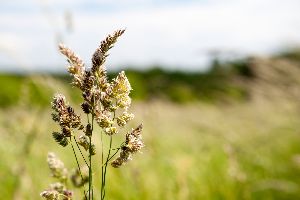A Guide to Allergy Season in North Carolina

The sniffles aren’t always caused by the common cold and could be caused by allergies. While you may assume spring is the peak season for airborne allergens, different types are present in the atmosphere year-round, with some being more common in North Carolina. Knowing when certain kinds are prevalent and how to protect yourself can benefit your health. Here’s what you should know to stay comfortable.
Common Questions About Allergies in North Carolina
When is NC allergy season?
Many plants release pollen at different times of the year to reproduce, which travels through the air and can trigger allergies when they’re inhaled. From March to June, trees are the primary source, peaking in April. Grass pollen is dominant from April to September, with the most intense months being May through August. Lastly, the season for weed pollen starts in August and ends in November or December, spiking in September.
What types of allergens can I be susceptible to?

Pollen, a yellow, powder-like substance, is a major cause of allergies. Tree species, such as Oak, River Birch, Hickory, and Yellow Poplar are also common in North Carolina and typically a primary source of allergens. Some of the top pollen-producing grasses in the region include Bermuda, fescue, and centipede. Finally, ragweed is also quite prevalent, producing billions of pollen grains. Dust mites and mold, during humid weather, can also become an issue and cause allergic reactions.
What are common symptoms of allergies?
You may experience a runny nose, frequent sneezing, congestion, a scratchy throat, irritated and watery eyes, and wheezing. If you’re sensitive to ragweed, it could cause headaches, and some allergens can trigger asthma and breathing issues.
How do I treat allergies?
Luckily, preventive treatment is the best way to dodge allergies and reduce the risk of a flare-up. For example, you can stay indoors on windy days, change clothes right away if you’ve been out, use a HEPA filter in your HVAC system, vacuum weekly, and monitor pollen counts in your area. You can also see a doctor for medication to alleviate symptoms or consider immunotherapy to lessen your sensitivity to certain allergens.
If you seek treatment for allergies, contact Carolina Doctors Med Care. Located in Sanford, NC, the facility uses state-of-the-art equipment to target health issues and help patients get relief. The compassionate staff strives to make every person feel comfortable and ensure their needs are met. Call (919) 774-3680 to make an appointment or visit them online to see their services.
About the Business
Have a question? Ask the experts!
Send your question

